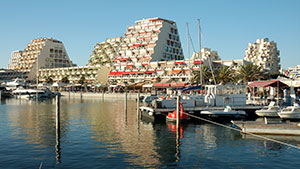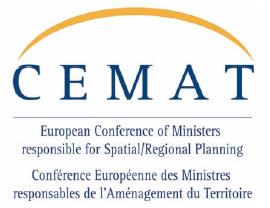2nd Conference of the Council of Europe of Ministers Responsible for Spatial Planning (CEMAT)
Objectives of a European regional planning policy
La Grande Motte, France, 25-27 September 1973

- to achieve in the regions social and environmental conditions that were as satisfactory as possible, and comparable levels of employment and income;
- to encourage development of every peripheral region that was in danger;
- to preserve vital parts of the infrastructure in regions that were in decline;
- to protect the environment from all forms of pollution and harm.
The guidelines adopted with a view to economic and social balance imply a balancing process that could only be achieved by attracting capital and initiatives to those regions with human resources available, and by eliminating the obstacles to their growth.
It was decided that, to fulfil these objectives, regional planning in Europe would have to be democratic, functional, comprehensive and forward-looking, requiring participation by the population groups concerned and their elected representatives, taking account of regional consciousness, transcending the artificial constraints imposed by boundaries, aiming to achieve the well-being of human beings and the success of their communities, and assessing with greater clarity long-term economic, social, cultural and environmental developments, through constantly renewed forward-looking research.
Wishing to translate these objectives into reality, the ministers examined their application to the three major problems which arose Europe-wide:
- transport policy,
- border regions,
- mountain regions.
 Adopted Resolutions
Adopted Resolutions
- General Resolution
- Resolution No. 1 on Regional planning policies and communications policies
- Resolution No. 2 on Frontier regions and regional planning
- Resolution No. 3 on Mountain regions and regional planning
- Resolution No. 4 on Long-range forecasting and regional planning
- Resolution No. 5 on Cartography, statistics, terminology and regional planning
- Resolution No. 6 on the statute and future action of the European Conference of Ministers responsible for regional planning



